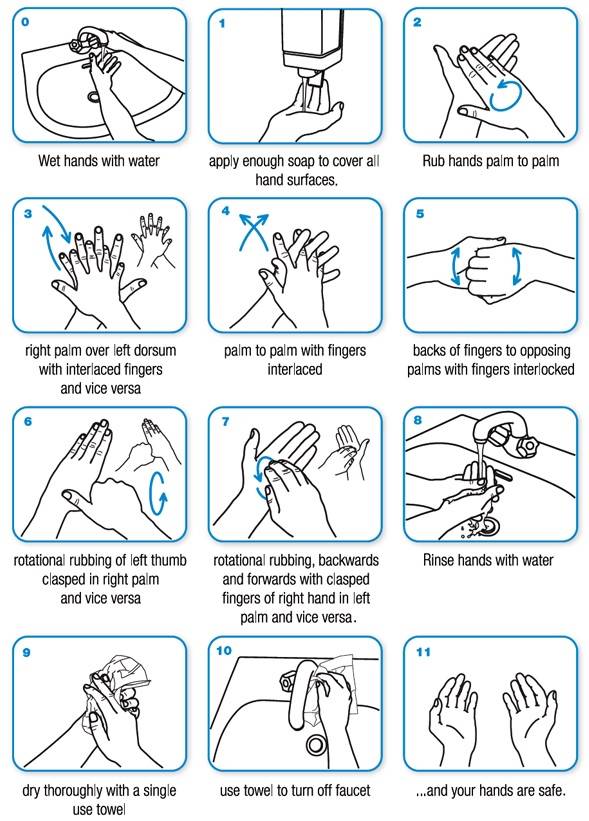The best way to prevent illness is to avoid being exposed to this virus.
COVID-19 is thought to spread mainly through close contact (within 6 feet) from person-to-person in respiratory droplets from someone who is infected. People who are infected often have symptoms of illness. Some people without symptoms may be able to spread virus.

Washing your hands is one of the most effective ways to prevent the spread of germs

Image Credit: WHO
Use Hand Sanitizer When You Can’t Use Soap and Water

Image Credit: WHO
Most Common Symptoms: Cough, Fever, Shortness of breath/difficulty breathing.

Image Credit: CDC
Less Common Symptoms: Chest pressure/tightness, Sudden loss of smell or
Taste, Body ache, Fatigue, Diarrhea, Headache, Runny Nose, Sore Throat
Most people have mild illness and are able to recover at home.
CDC has guidance for who should be tested, but decisions about testing are at the discretion of state and local health departments and/or individual clinicians.

Image Credit: US Public Health Services
Older adults and people who have severe underlying medical conditions like heart or lung disease or diabetes seem to be at higher risk for developing more serious complications from COVID-19 illness.

Image Credit: WHO
– Stay home except to get medical care
– Separate yourself from other people and pets in your home, this is known as home isolation
– Call ahead before visiting your doctor
– If you are sick wear a cloth covering over your nose and mouth
– Cover your coughs and sneezes
– Clean your hands often
– Avoid sharing personal household items
– Clean all “high-touch” surfaces every day
– Monitor your symptoms

– Call 911 if you have a medical emergency
Image Credit: WHO
For more information visit cdc.gov
